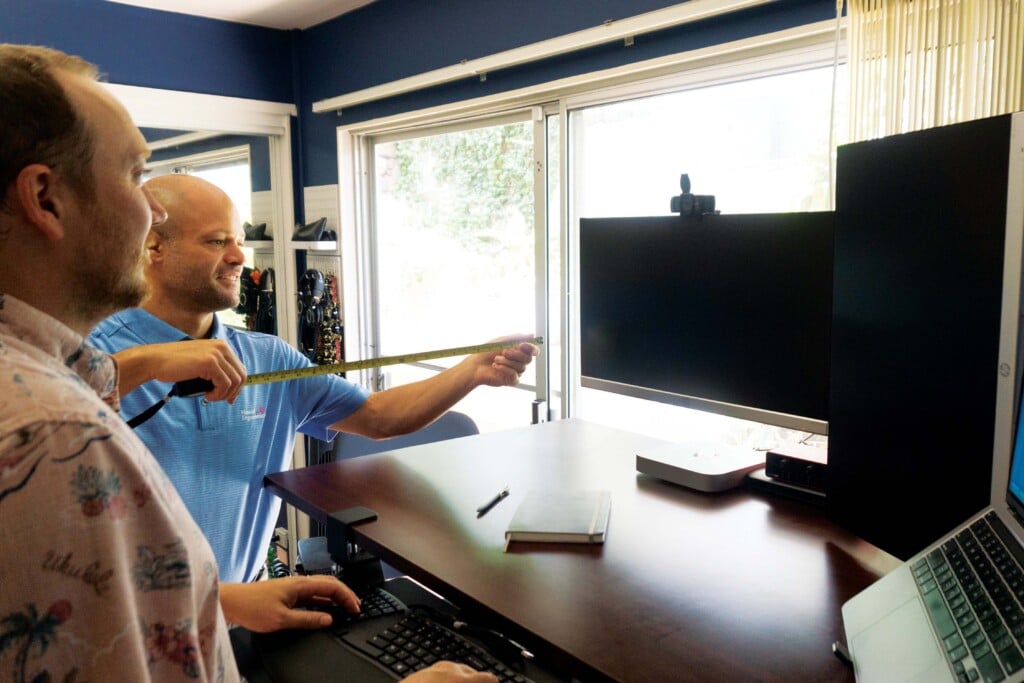“Networking’s for Suckers, Not Me”

Q: I swear I hear the word “networking” a hundred times a week. My co-workers insist it’s the only way to climb the business ladder. My parents tell me it’s how to meet friends. My boss tells me it’s a good way to grow my business portfolio. And I want to tell all of them to bug off. Why in the world do people find it enjoyable and advantageous to go into a room where they know absolutely no one and wander around making mindless chatter until the hour eventually comes to a painful end? I’m good at my job and I already have friends, so I prefer to go to the gym, go to work and go home.
A: I’m sorry. Perhaps I missed something? Did any of them say to do it because it’s enjoyable? No, they told you it’s important to your career, your livelihood and your social life. But if that gym/job/couch gig is working for you, you do you.
Pretty much every research project ever done about personal and business success comes back to networking as a vital tool. You need to know people to get a job, succeed at a job, sell stuff from your job, buy stuff for your job and make informed decisions about your job. And heaven help you if you no longer have that job. Networking is the ninja tool for those who suddenly find themselves unemployed.
“What determines whether a drug dealer dies or becomes a kingpin?” author Eric Barker asks in his book, “Barking Up the Wrong Tree.” “Yup. The size of his network.”
But here’s the thing. Networking doesn’t have to mean a room full of strangers and cheap beer and wine. Start easy by simply reconnecting with the people you know. Scroll through your Facebook friends, reaching out to those in similar fields or with similar interests. Figure out those friends who seem to know everybody and hang out with them. Chances are you’ll meet new people. Maybe you’ll like some of them. Voila! You’ve networked and now you have people you can invite to events and add to your LinkedIn connections. Your boss will be suitably impressed, and should you ever need someone to pay for the beer because you’ve gotten a dreaded pink slip, you’ll have a posse standing by.
We call it networking, maybe because we think we need a word for everything, but really, it’s human interaction with like-minded people. In an era of fake news and computer bots, why not take a chance on a little conversation and common interests? Who knows? Maybe you’ll even find someone who goes to the same gym so you can network and work out at the same time.
Q: My parents brought me up to believe that there are some things not discussed in polite conversation, especially money. Now I’m back home from college and have my first job, and money seems to be the only thing my friends want to talk about! They tell me their salaries, hourly wages and take-home pay. They talk about what they paid for their car, and even how much they spent (and didn’t spend!) on holiday gifts. And now it’s even coming up at work, with colleagues nosing around to find out what the new guy is making. Did the rules change and I missed it, or were all these people raised by animals at the zoo? Help!
A: Ah, yes. Money: the root of all evil and the thing never to be named. Except, why not?
It turns out times have changed since your parents and I doled out wisdom. The Cashlorette, Bankrate’s moneywise blog targeting Millennials, found in a survey that your generation is all about that money life and dishing about it. The survey found that 63 percent of Millennials share information about their salary with family members, 48 percent share with friends and 30 percent tell co-workers. (On the flip side, your parents and I are more discreet: only 41 percent share with family, 21 percent tell a close friend and a scant 8 percent whisper to a co-worker.)
And honestly, it makes sense. Like with much of life, the more you know, the more you can make informed decisions – and the more you can successfully advocate for yourself using facts, figures and real-life scenarios. Talking with friends and family with similar incomes can help you figure out how to better budget and give you a more informed opinion of the job market and expectations.
Cashlorette blogger Sarah Berger (no relation to me) cautions readers to be savvy about dishing at the office, however, reminding readers that salaries aren’t always about equality. “If you’re a boss babe and #slay from the moment you power up your laptop, you might be making more than your cubemate who slides in late every day,” she says. On the flip side, she says, open discussions among carefully selected colleagues can help identify wage gaps and prompt employees to conjure the courage to ask for a raise.
Dana Arbaugh Varona grew up in Kailua with parents who think like yours, but she finds it helpful to talk money with friends and colleagues as she and her husband settle into life on the East Coast. “We speak more freely than our parents’ generations about these things,” she says, “with one large caveat: Our friends enjoy a similar lifestyle.”
They also dish about money and big life decisions, like buying a car or a home or planning a vacation, sharing negotiating skills, tips on how to budget and intel on things like mortgage rates. “Transparency around financial matters, public salary postings and websites like Glassdoor have shown me what salary I can realistically expect,” she says. “As a result, I know my financial worth and won’t settle for less.”
As for who raised your friends and co-workers, perhaps your notion of the zoo may be apt. You’ll recall the Honolulu Zoo lost its accreditation in 2016, not because officials there were uncaring toward the animals but because they could not demonstrate adequate and consistent funding sources. Yep. Seems they didn’t talk enough about money. Take counsel from your friends and colleagues about the money talks; just don’t forget all the other life-lessons your parents taught you.
Ask the careerist
Have a question about work, life and that place in the middle where it all gets tangled up? Ask me at:
feedback@hawaiibusiness.com






